Are you considering bringing a West Highland White Terrier into your life as a furry companion? These charming little dogs are known for their playful personalities, lively energy and affectionate nature, making them a popular choice for families and individuals alike. Whether you’re looking for a dog to join you on outdoor adventures or simply to snuggle up with on the couch, the West Highland White Terrier could be the perfect match for you. In this article, we’ll explore some of the key traits and considerations to keep in mind when considering a Westie as a pet.
Breed Category: Terrier
Country of Origin: Scotland
Average Size:28-30 cm
Average Weight:6-10 kg
Average Life Span: 12-16 years
Grooming Requirements: High
Exercise Requirements:Moderate
History and Origin
The West Highland White Terrier, also known as the Westie, is a small breed of dog that originated in Scotland. The breed was developed in the 19th century for the purpose of hunting small game, such as rodents and rabbits. The Westie is a popular breed today, known for its friendly and outgoing personality, as well as its distinctive white coat.
The exact origins of the West Highland White Terrier are not known, but it is believed that the breed was developed in the Scottish Highlands in the 19th century. The Westie is thought to be descended from several different breeds of terrier, including the Cairn Terrier, Scottish Terrier, and Dandie Dinmont Terrier. These breeds were all used for hunting small game, and the Westie was developed specifically for this purpose.
The West Highland White Terrier was first shown in the United Kingdom in 1907, and the breed was officially recognized by the Kennel Club in 1908. The breed quickly became popular, both in the UK and in other countries, and today the Westie is one of the most popular breeds of terrier in the world.
During World War I and World War II, the West Highland White Terrier was used as a messenger dog and as a guard dog. The breed’s small size and agility made it well-suited for these roles, and many Westies served with distinction during the wars.
In the 20th century, the West Highland White Terrier became a popular breed for television and film. The breed was featured in several popular TV shows and movies, including “Frasier” and “The Wizard of Oz.” Today, the Westie is still a popular breed for television and film, and can often be seen in commercials and other media.
The West Highland White Terrier is known for its friendly and outgoing personality, as well as its intelligence and loyalty. The breed is also known for its distinctive white coat, which is thick and double-layered. The Westie’s coat requires regular grooming to keep it in good condition, and the breed is prone to certain health problems, including skin allergies and ear infections.
In conclusion, the West Highland White Terrier is a beloved breed of dog that has a rich history and a loyal following. The breed’s origins in the Scottish Highlands, its role in World War I and World
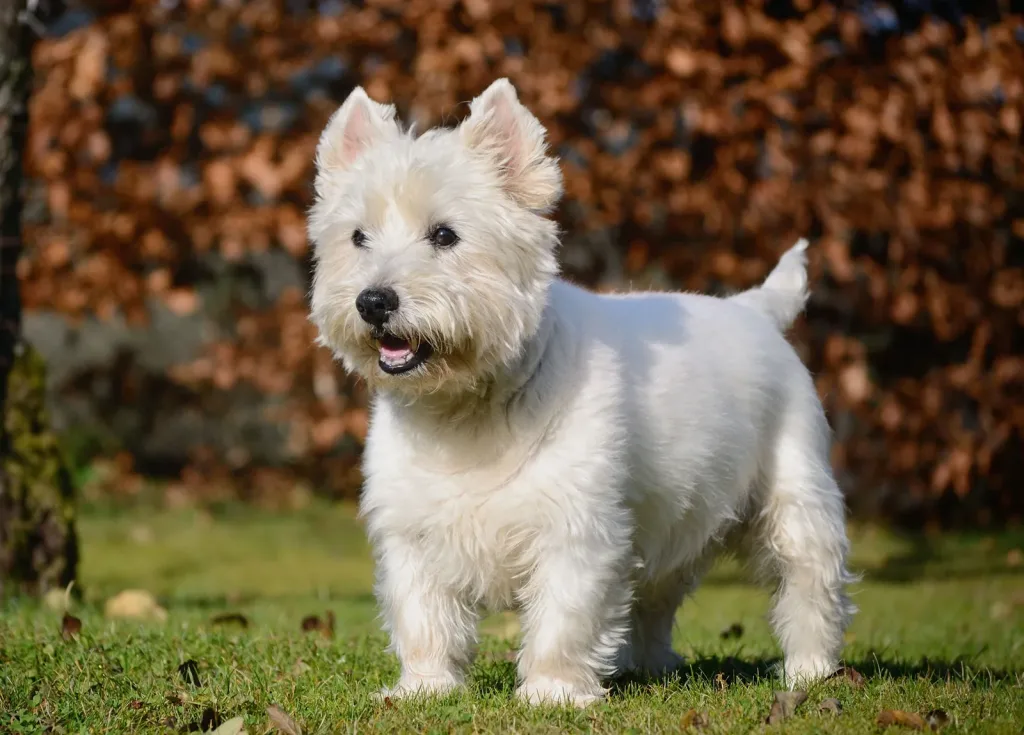
Size and Breed Category
The West Highland White Terrier, also known as the Westie, is a small breed of dog that belongs to the terrier group. They typically weigh between 6-10 kilograms and stand at a height of 25-28 centimeters at the shoulder. Their compact size makes them an ideal pet for those living in apartments or smaller homes. Despite their small stature, Westies are known for their feisty and energetic personalities, which make them great companions for active individuals.
As a terrier breed, Westies are known for their hunting instincts and were originally bred to hunt small rodents. They have a double coat of fur, which is typically white in color and requires regular grooming to maintain its appearance. Westies are also known for their distinctive pointed ears and dark, almond-shaped eyes. Overall, the West Highland White Terrier is a small but sturdy breed that is full of energy and personality.
Fur Length and Colour
The fur of the West Highland White Terrier is typically around 5-7cm in length, with a dense undercoat and a wiry topcoat. The fur is predominantly white, as the name suggests, but may have slight cream or biscuit-coloured markings on the ears or back. The fur is weather-resistant and was originally bred to withstand the harsh Scottish climate. The texture of the fur is rough to the touch, and it requires regular grooming to prevent matting and tangling. The fur sheds minimally, making it a good choice for those with allergies.
The West Highland White Terrier’s fur colour is a result of selective breeding, with breeders aiming to produce a dog that would stand out against the Scottish landscape. The white fur allowed the dog to be easily spotted by hunters, and also made it less likely to be mistaken for a fox or other prey. The fur colour also has practical benefits, as it makes it easier to spot any dirt or debris that may have become trapped in the fur. The West Highland White Terrier’s fur is an important part of its appearance and character, and is a defining feature of the breed.
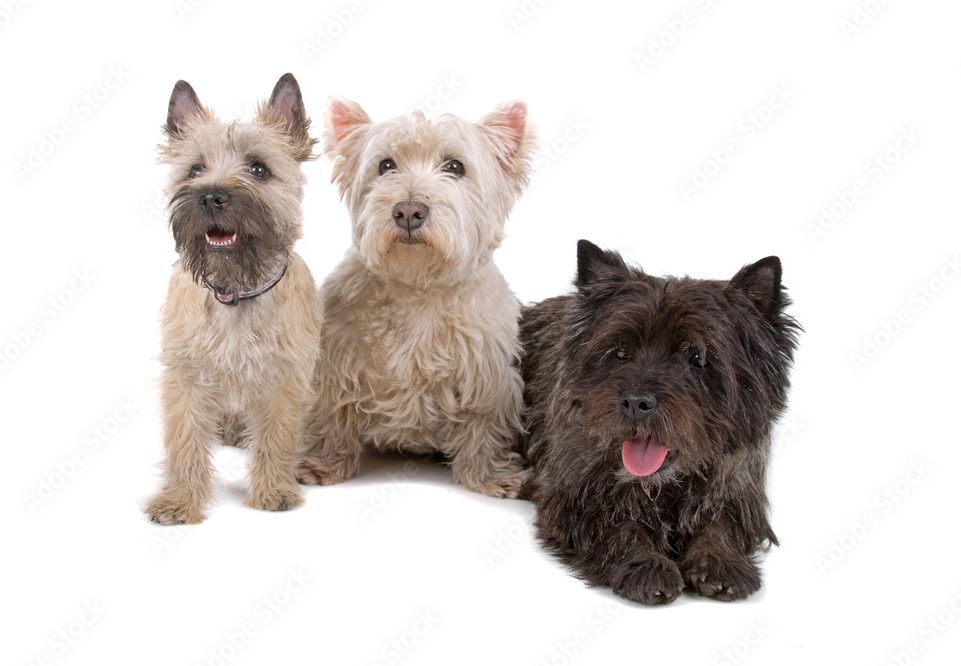
Termperament and Trainability
West Highland White Terriers are known for their lively and outgoing temperament. They are confident and self-assured dogs that are always eager to please their owners. They are also highly intelligent and quick learners, making them easy to train. However, they can be stubborn at times and may require consistent and patient training. Westies are also known for their high energy levels and require regular exercise to keep them happy and healthy. They are great companions for active families who enjoy spending time outdoors.
When it comes to trainability, West Highland White Terriers are considered to be one of the most trainable breeds. They are quick learners and respond well to positive reinforcement training methods. They are also highly adaptable and can easily adjust to new environments and situations. However, they can be sensitive to harsh training methods and may become fearful or anxious if they are treated harshly. It is important to use positive reinforcement techniques such as treats, praise, and playtime to motivate and reward them during training. With consistent and patient training, Westies can excel in obedience, agility, and other dog sports.
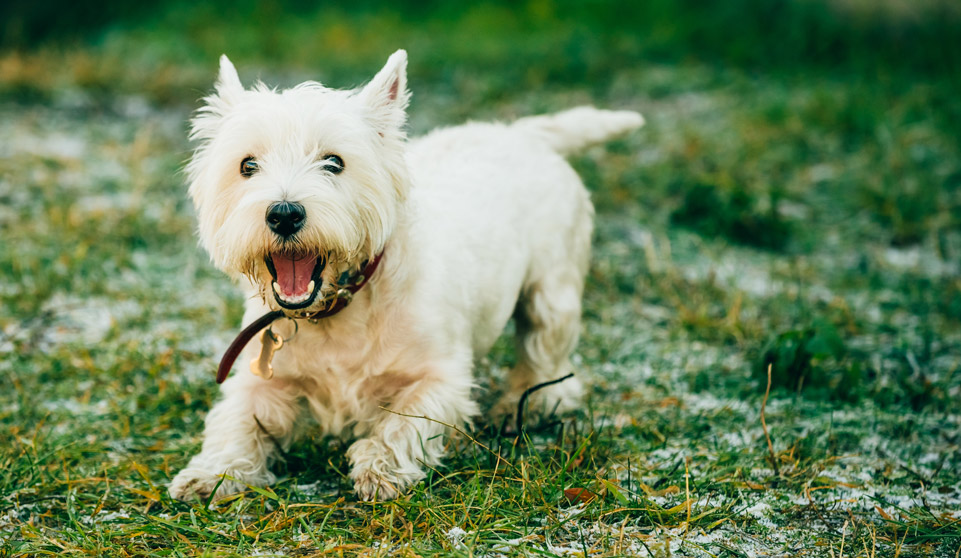
Known Health Conditions
West Highland White Terriers are prone to a number of health conditions, including skin allergies, which can cause itching, hair loss, and skin infections. These allergies can be caused by a variety of factors, including food, pollen, and dust mites. Additionally, Westies are prone to a condition called atopic dermatitis, which is a chronic skin condition that causes inflammation and itching. This condition can be managed with medication and a hypoallergenic diet. Westies are also prone to a condition called craniomandibular osteopathy, which is a bone disorder that affects the jaw. This condition can cause pain and difficulty eating, and may require surgery to correct.
Another health condition that West Highland White Terriers are prone to is called Legg-Calve-Perthes disease, which is a degenerative condition that affects the hip joint. This condition can cause pain, limping, and difficulty walking, and may require surgery to correct. Westies are also prone to a condition called patellar luxation, which is a dislocation of the kneecap. This condition can cause pain and difficulty walking, and may require surgery to correct. Additionally, Westies are prone to a number of eye conditions, including cataracts, glaucoma, and dry eye syndrome. These conditions can cause vision loss and may require medication or surgery to manage.
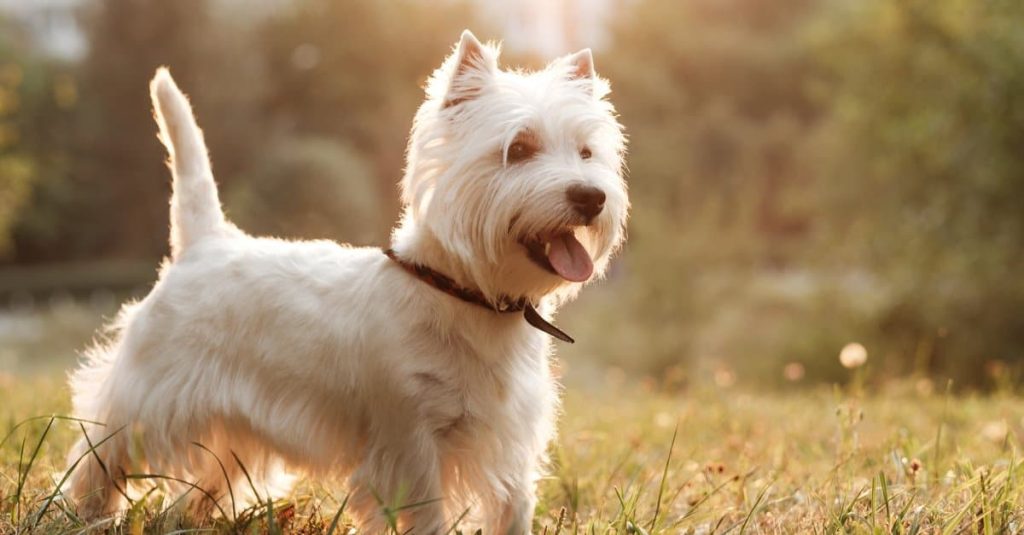
Openness to Strangers
West Highland White Terriers, also known as Westies, have a reputation for being friendly and sociable dogs. They are known to be quite open to strangers, often approaching them with a wagging tail and a curious expression. This makes them great companions for those who enjoy meeting new people and having visitors over. Westies are also known to be quite adaptable, which means they can easily adjust to new environments and people. This makes them great travel companions, as they are not easily stressed by new surroundings or unfamiliar faces.
Westies are also known for their loyalty and affection towards their owners. They are often described as being very loving and devoted, and they enjoy spending time with their families. This makes them great pets for those who are looking for a companion that will always be by their side. Westies are also known to be quite intelligent, which means they can be trained to do a variety of tasks. They are often used as therapy dogs, as they have a calming effect on people and are great at providing emotional support. Overall, Westies are a great breed for those who are looking for a friendly, loyal, and adaptable companion.
Playfulness Level
The West Highland White Terrier, also known as the Westie, is a highly playful breed of dog. They are known for their energetic and lively nature, making them a popular choice for families with children. Their playful demeanor is evident in their love for games and toys, and they are always up for a good romp in the park or backyard. Westies are also known for their love of digging, which can be a source of entertainment for both the dog and their owner. Their playful nature makes them a joy to be around and a great addition to any household.
Westies are also known for their mischievous streak, which adds to their playful personality. They are curious and adventurous, always eager to explore their surroundings and get into mischief. This can sometimes lead to them getting into trouble, but their playful nature and charming personality make it hard to stay mad at them for long. Westies are also known for their love of attention, and they will often seek out their owner’s affection through playful antics and cuddles. Overall, the West Highland White Terrier is a highly playful and entertaining breed of dog that is sure to bring joy and laughter to any household.
Suitability as a Pet for Children
West Highland White Terriers, also known as Westies, have a friendly and outgoing personality that makes them a great pet for children. They are energetic and playful, which means they will keep children entertained for hours. Westies are also intelligent and easy to train, making them a good choice for families with young children who want to teach their pet new tricks. Additionally, Westies are small enough to be easily handled by children, but not so small that they are fragile or easily injured. Overall, Westies are a great pet for families with children who are looking for a loyal and fun-loving companion.
Exercise Needs
West Highland White Terriers require regular exercise to maintain their physical and mental health. As a small breed, they do not need as much exercise as larger breeds, but they still require daily walks and playtime. A minimum of 30 minutes of exercise per day is recommended, but they will happily take more if offered. Westies are known for their high energy levels and love to play, so interactive games such as fetch or tug-of-war are great ways to keep them active. They also enjoy exploring their surroundings, so taking them on walks in new environments can provide mental stimulation as well as physical exercise.
In addition to daily exercise, West Highland White Terriers benefit from regular training and socialization. They are intelligent dogs and enjoy learning new tricks and commands. Training sessions can be incorporated into their exercise routine to provide mental stimulation and strengthen the bond between owner and dog. Socialization is also important for Westies, as they can be prone to developing separation anxiety if not exposed to different people and situations from a young age. Taking them to dog parks or on playdates with other dogs can help them develop social skills and prevent behavioural issues.
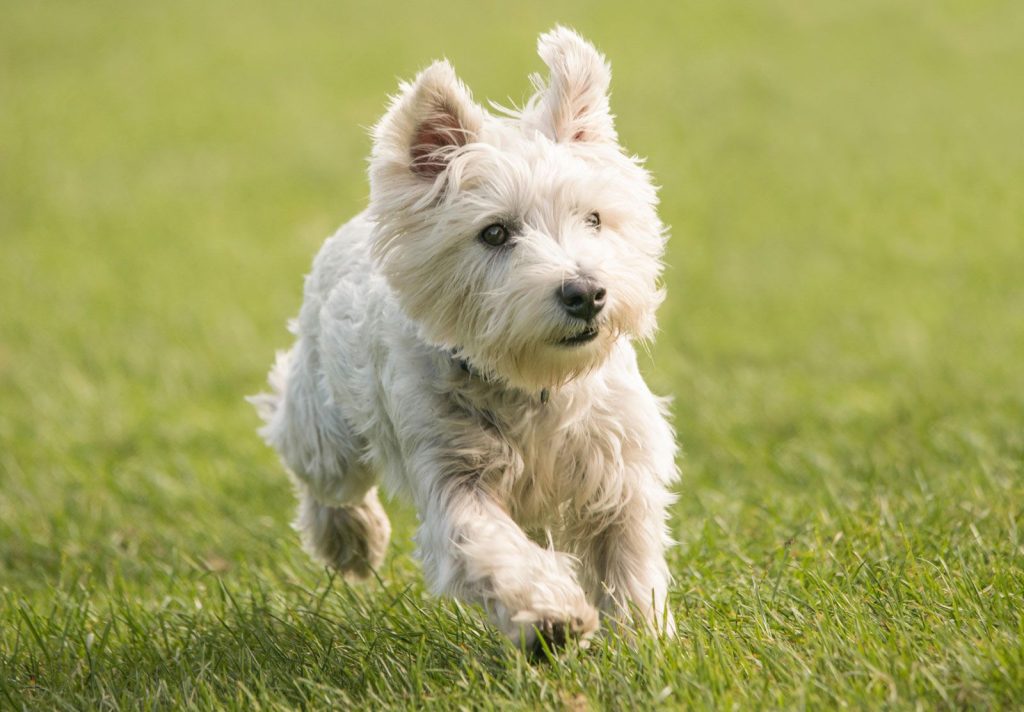
Suitability for a Multi-Pet Family
West Highland White Terriers have a reputation for being friendly towards other pets. They are known to get along well with cats and other dogs, as long as they are socialized properly from a young age. However, it is important to note that every dog is different and some Westies may not be as accepting of other animals. It is always best to introduce new pets slowly and under supervision to ensure a positive outcome.
Housing Requirements
West Highland White Terriers require a living space that is comfortable and safe. They need a warm and dry environment that is free from drafts and dampness. The ideal temperature for a West Highland White Terrier is between 18-22°C. They also require a space that is well-ventilated to prevent the buildup of odors and bacteria. The living space should be large enough for the dog to move around freely and have access to their food and water bowls. It is important to provide a comfortable bed for the dog to rest in, as well as toys and other forms of entertainment to keep them mentally stimulated.
West Highland White Terriers require regular exercise to maintain their physical and mental health. They need a secure outdoor space where they can run and play freely. The space should be fenced to prevent the dog from escaping and should be free from any hazards such as sharp objects or toxic plants. West Highland White Terriers also require daily walks to keep them active and prevent obesity. The length and intensity of the walk should be appropriate for the dog’s age and physical condition. It is important to provide plenty of fresh water during exercise to prevent dehydration.
Summary
West Highland White Terriers, commonly referred to as Westies, are a popular choice for pet owners in the UK. They are known for their lively and friendly personalities, making them great companions for families and individuals alike. With their high energy levels, they require regular exercise and mental stimulation to keep them happy and healthy. Westies are also known for their intelligence and trainability, making them a good choice for first-time dog owners. Overall, Westies make great pets for those who are willing to provide them with the attention and care they need.
West Highland White Terrier – Westies Dog FAQS
Yes, West Highland White Terriers are generally good with children, but should always be supervised.
Yes, West Highland White Terriers are prone to skin allergies, hip dysplasia, and patellar luxation.
Yes, West Highland White Terriers can adapt well to apartment living as long as they get enough exercise.
Yes, West Highland White Terriers shed moderately and require regular grooming.
A West Highland White Terrier needs at least 30 minutes of exercise per day.
You should feed your West Highland White Terrier between 100-150 grams of high-quality dog food per day, divided into two meals.
You should groom your West Highland White Terrier at least once a week.
You should take your West Highland White Terrier to the vet for regular check-ups at least once a year.
The average weight of a West Highland White Terrier is between 6-10 kg.
The life expectancy of a West Highland White Terrier is between 12-16 years.
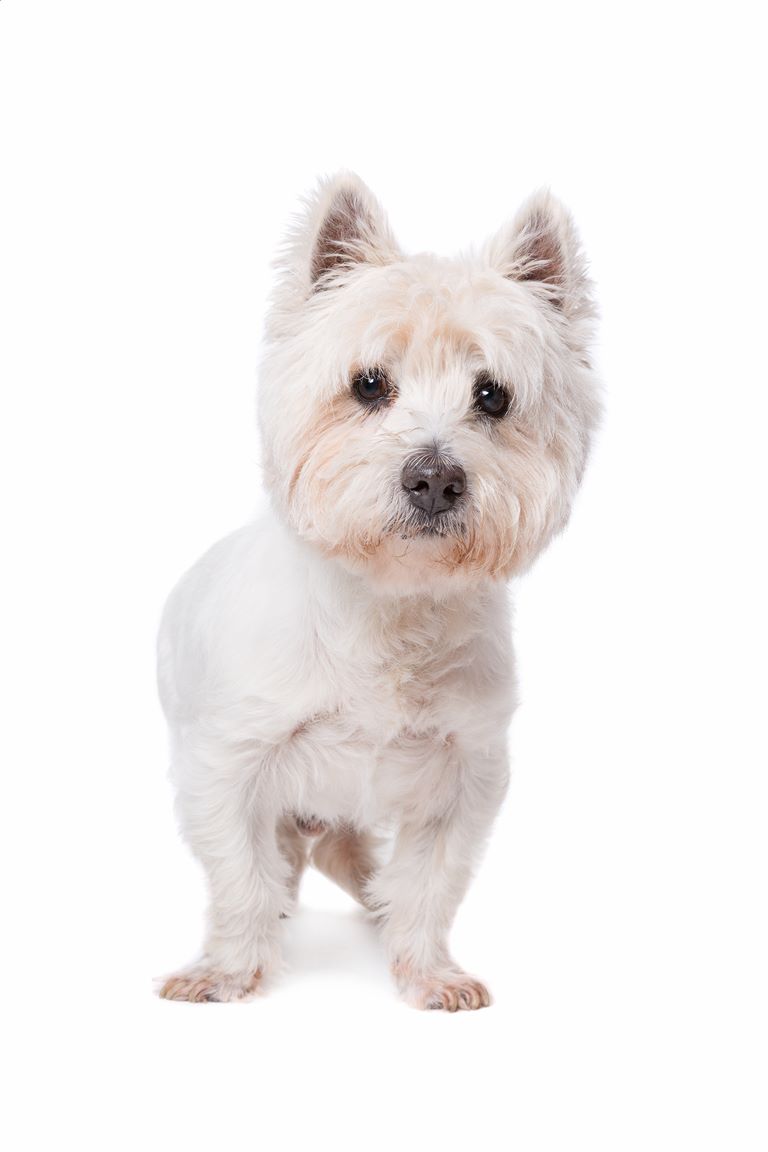

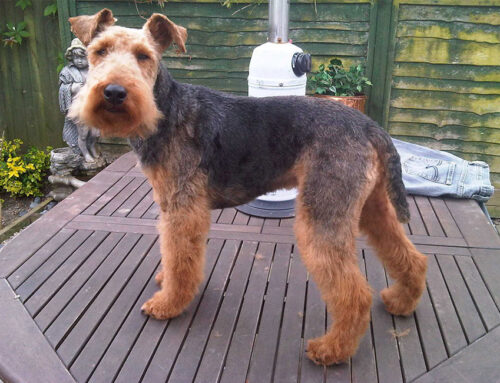
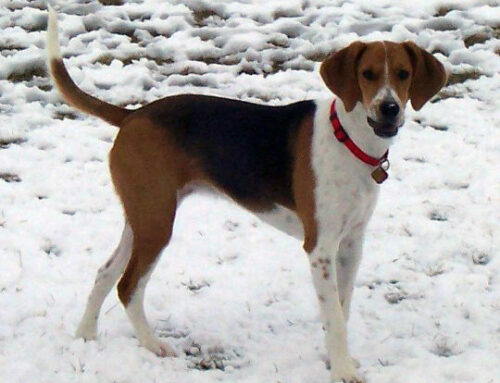
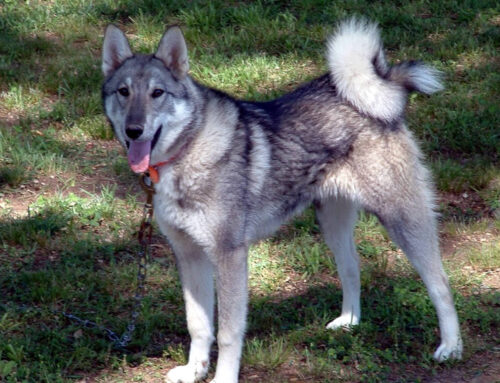
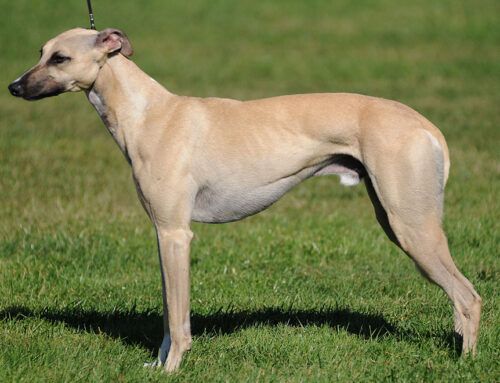
Leave A Comment